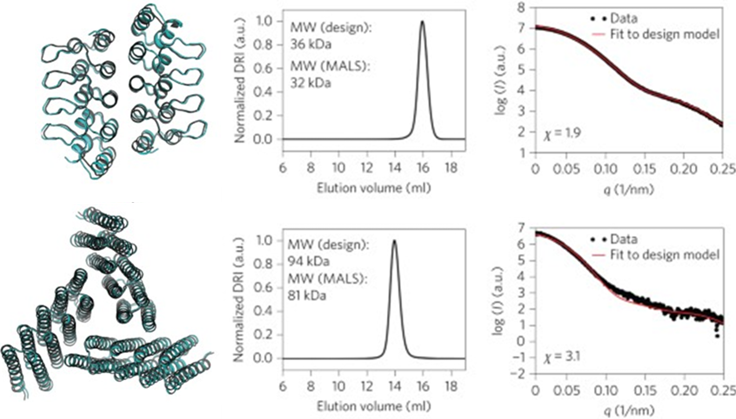Nobel Prize 2024: Congratulations to Professor David Baker!

October 15, 2024
Congratulations to David Baker of the University of Washington School of Medicine on being awarded the 2024 Nobel Prize in Chemistry for his pioneering contributions to computational protein design. Prof. Baker is a leading computational biologist and professor of biochemistry. He shares this prestigious honor with Demis Hassabis and John M. Jumper of DeepMind, who were recognized for their achievements in protein structure prediction.
Proteins are fundamental to a wide range of cellular functions, and their activity hinges on the unique 3-D shapes formed by folding chains of amino acids. For decades, Professor Baker and his team have leveraged computational power to understand how these shapes form, providing critical insights that advance our understanding of biology and drive the development of new therapeutic approaches.
The Rosetta program, developed by Professor Baker and his team in 1999, was central to his contribution. Rosetta predicts protein structures by assembling small structural fragments from unrelated proteins with similar local sequences found in the Protein Data Bank. The program simultaneously optimizes both sequence and structure to fit a target backbone conformation, using Monte Carlo optimization and an energy function that accounts for van der Waals interactions, hydrogen bonding, and solvation effects. Designed as a versatile tool for both protein structure prediction and design, Rosetta has continued to evolve with contributions from the global scientific community, fueling a wide range of applications in protein design.
A landmark achievement came in 2003, when Professor Baker and his team designed Top7—a protein unlike any found in nature, featuring a unique folding pattern predicted entirely through computational methods. The precision of its predicted structure matched experimental results down to the individual sidechain positions, illustrating the potential of computational tools to design proteins from scratch.
Throughout his distinguished career, Professor Baker has published over 640 peer-reviewed research papers, received more than 100 patents, and co-founded 21 biotech companies. His dedication to mentorship has seen 90 of his doctoral and postdoctoral trainees go on to independent faculty positions. His unwavering commitment to open science has fostered a collaborative global community, making the cutting-edge tools and knowledge from his research accessible to accelerate scientific discovery.
As a cherished Wyatt customer for over a decade, it has been our honor to support Prof. Baker in the experimental aspects of his work, where light scattering is used to characterize protein complexes, conjugates, and other biomacromolecules.
Select Recent Publications:
- De novo design of buttressed loops for sculpting protein functions; Nature Chemistry
- Precisely patterned nanofibres made from extendable protein multiplexes; Nature Chemistry
- Modulation of FGF pathway signaling and vascular differentiation using designed oligomeric assemblies; Cell
References:
University of Washington. “Biochemist David Baker receives Nobel Prize”. 9 Oct 2024. https://newsroom.uw.edu/news-releases/biochemist-david-baker-receives-nobel-prize
Advanced information. NobelPrize.org. Nobel Prize Outreach AB 2024. 10 Oct 2024. https://www.nobelprize.org/prizes/chemistry/2024/advanced-information

Adapted from: Fallas, J., Ueda, G., Sheffler, W. et al. Computational design of self-assembling cyclic protein homo-oligomers. Nature Chem 9, 353–360 (2017). https://doi.org/10.1038/nchem.2673
